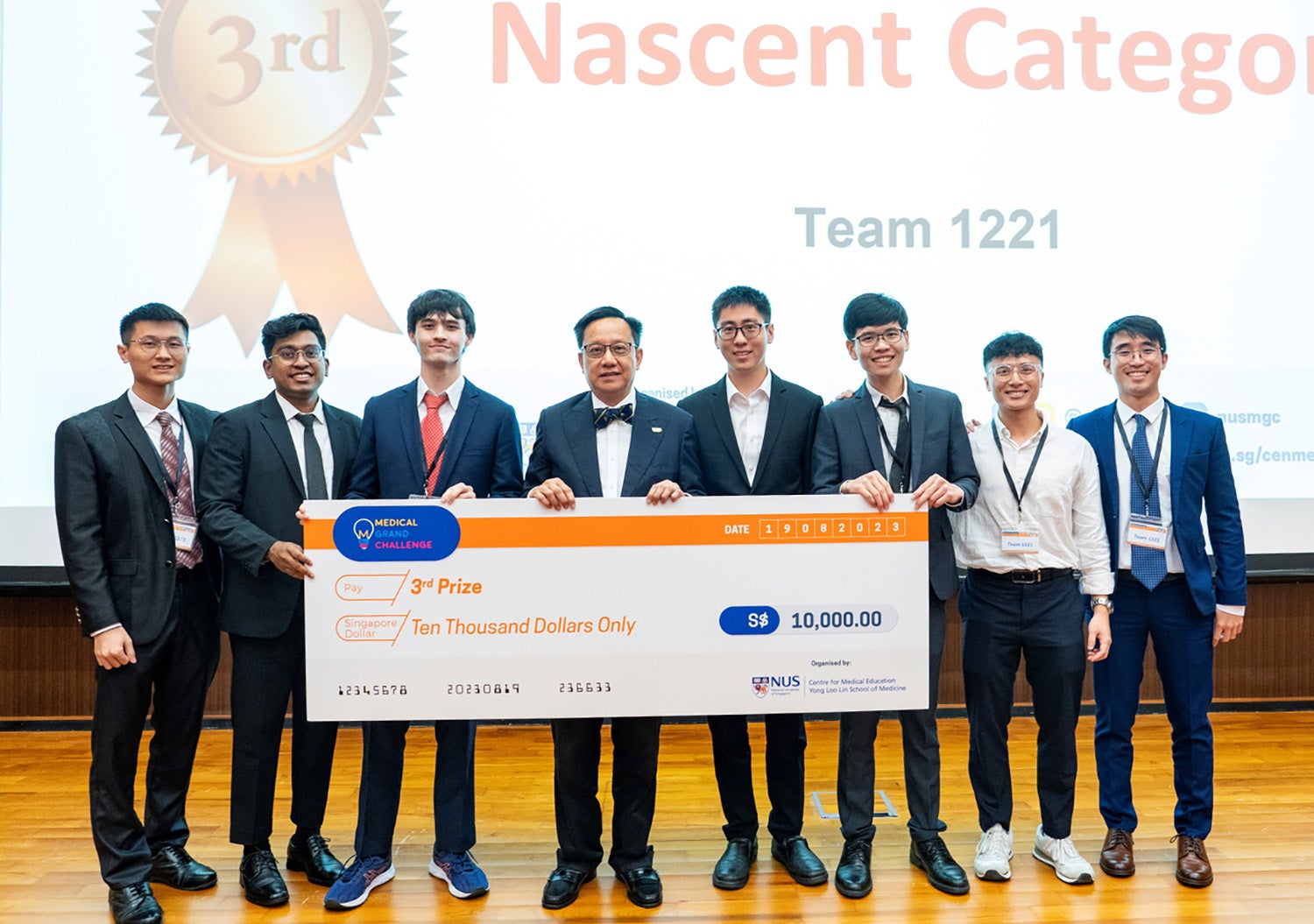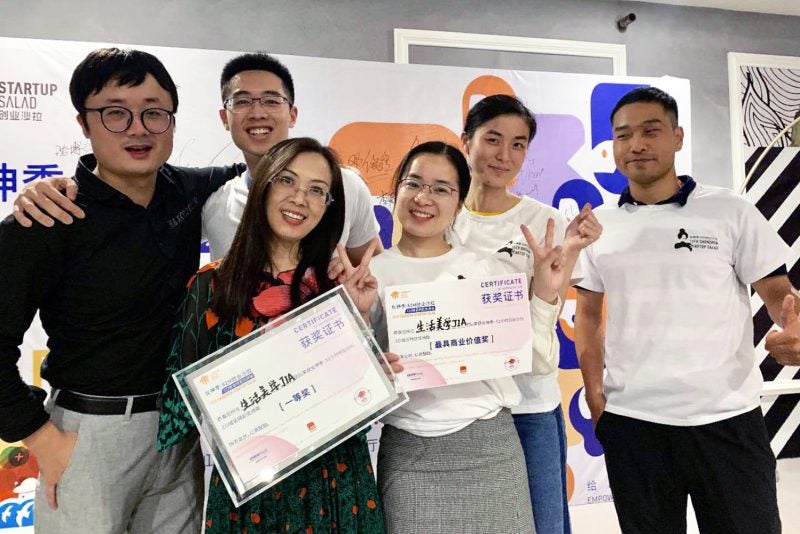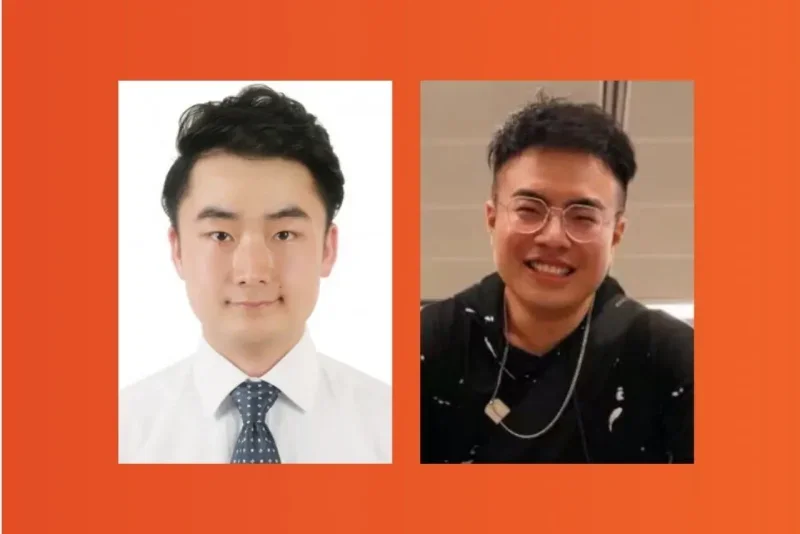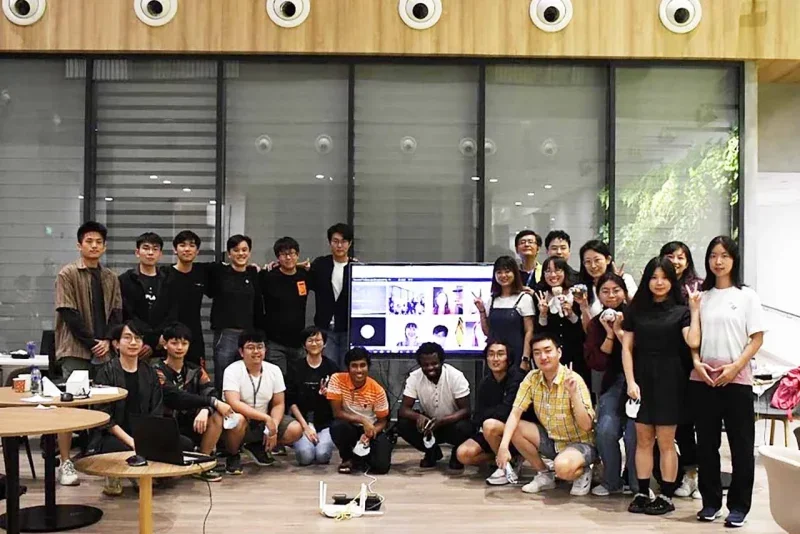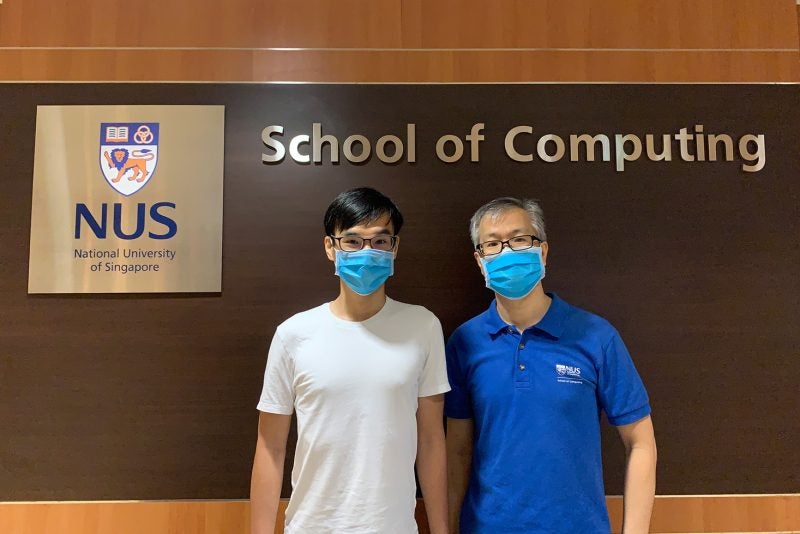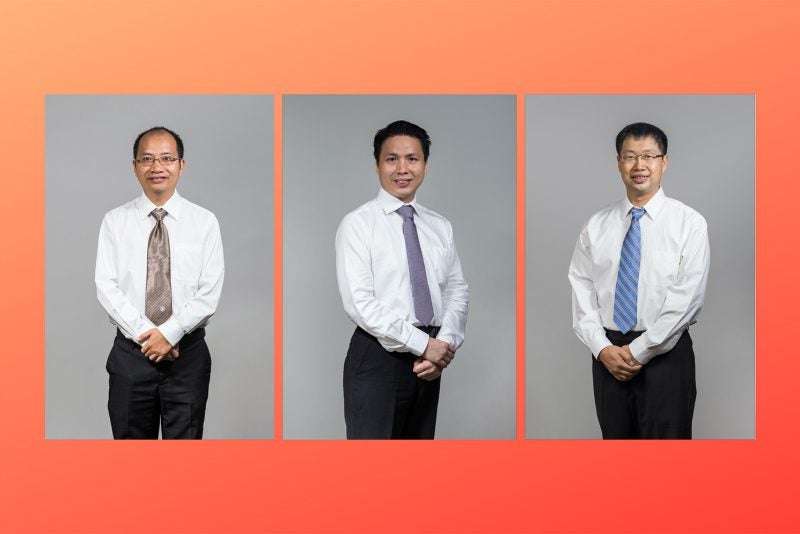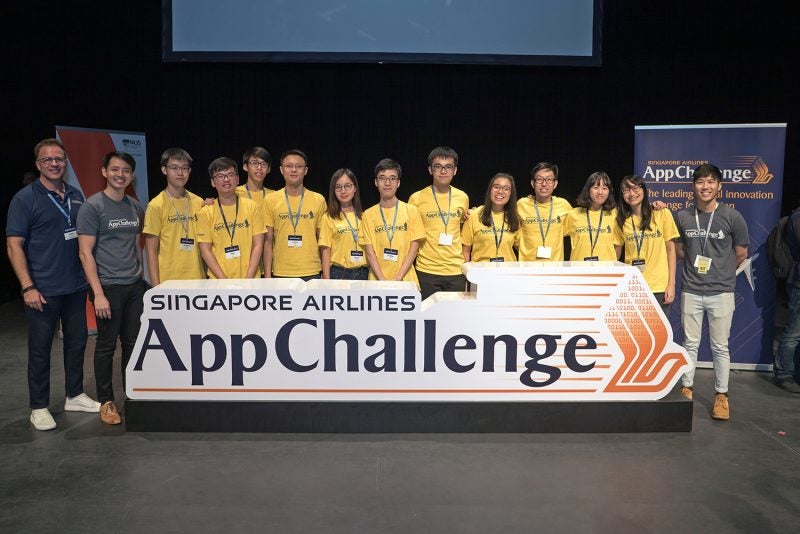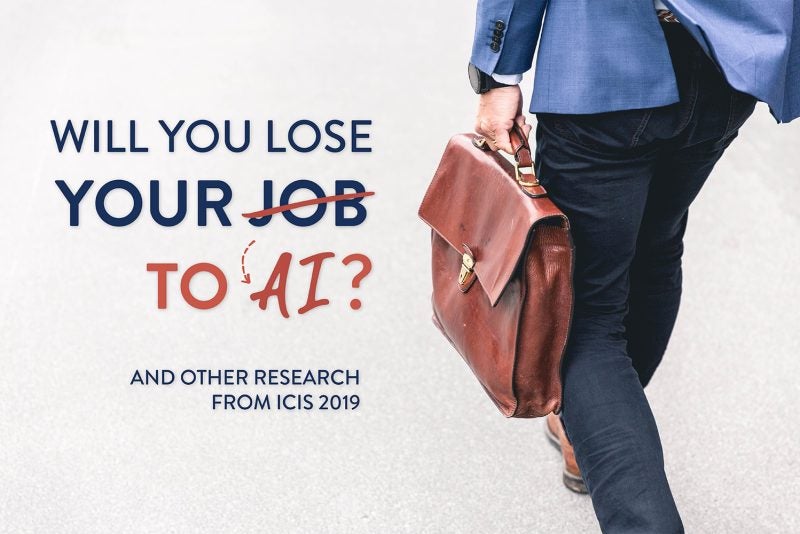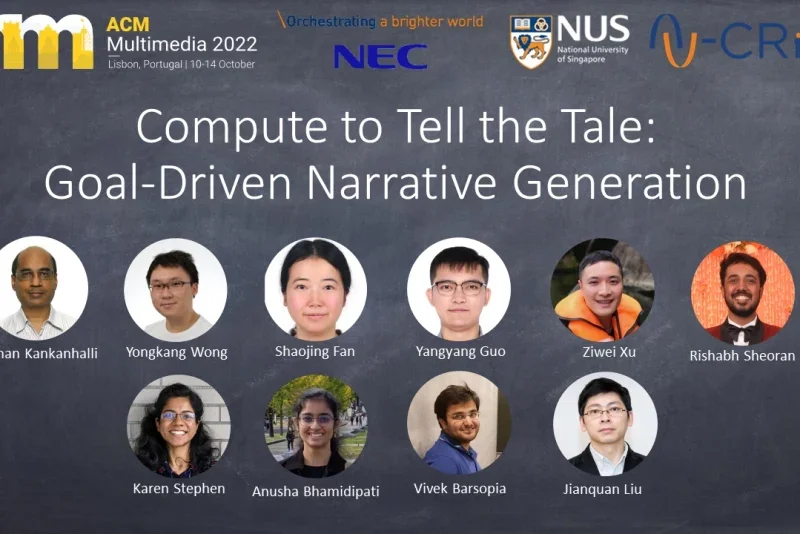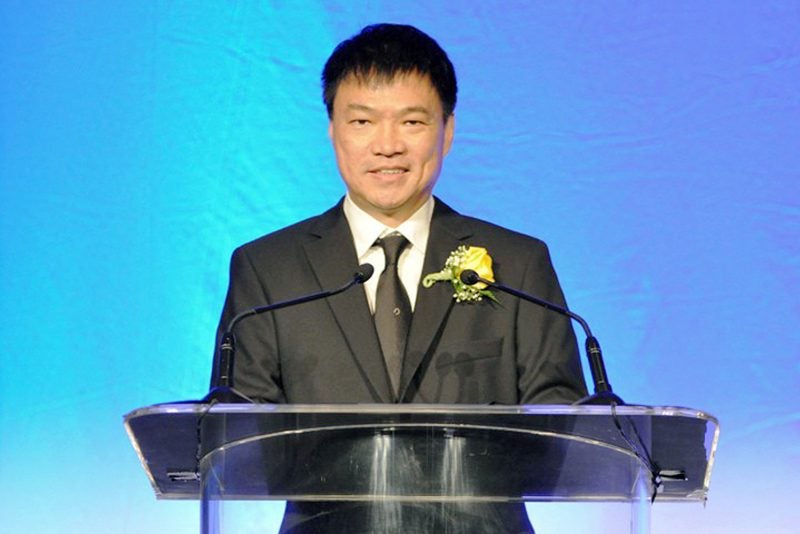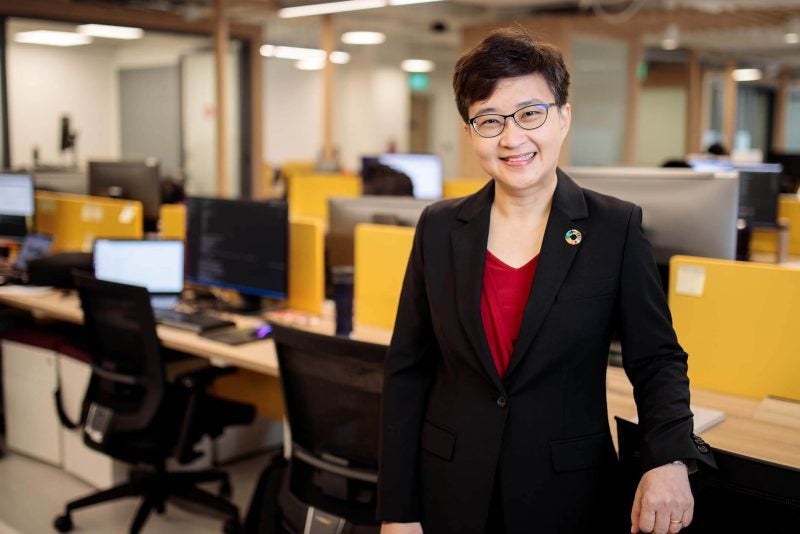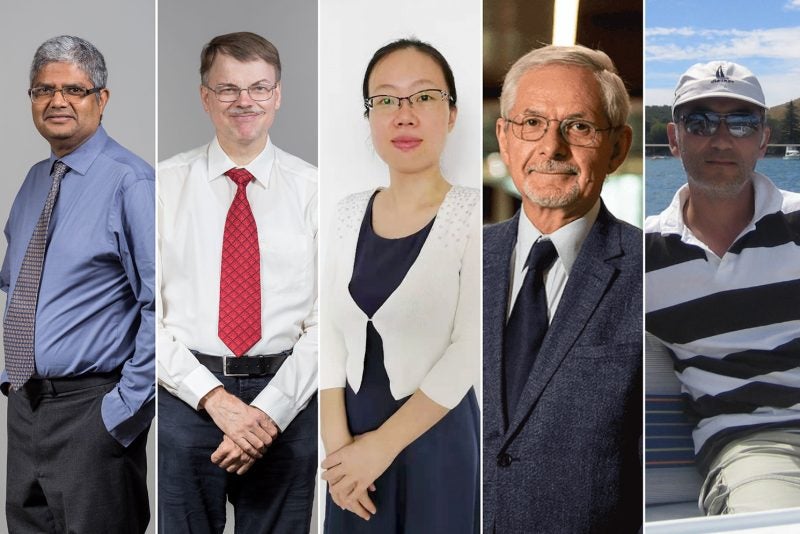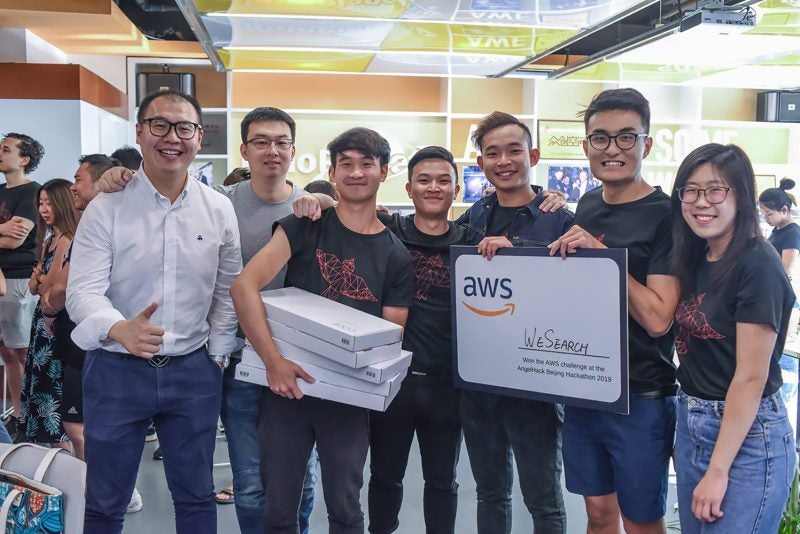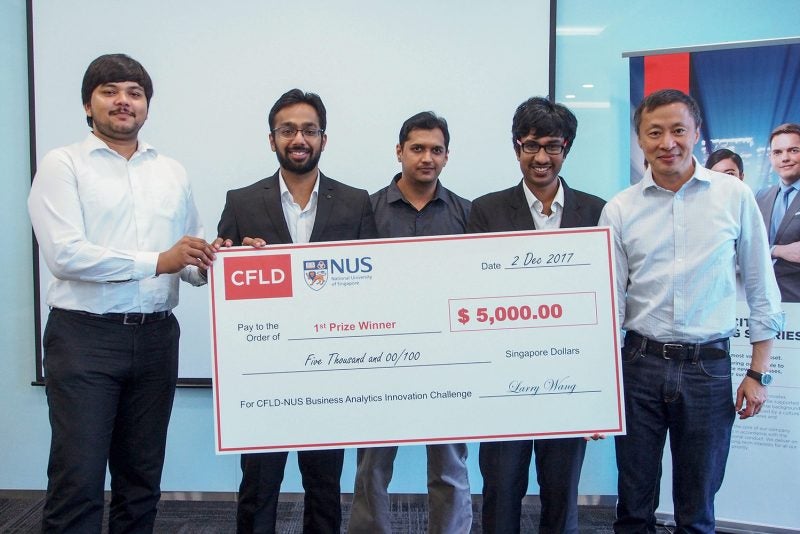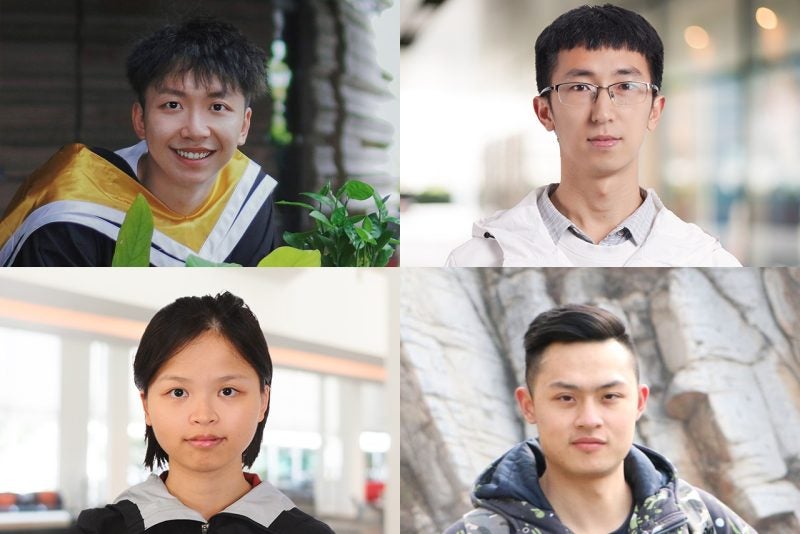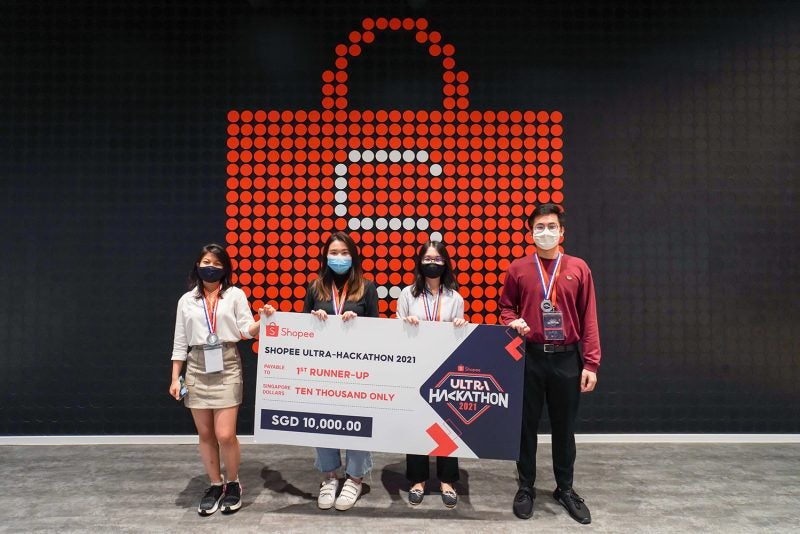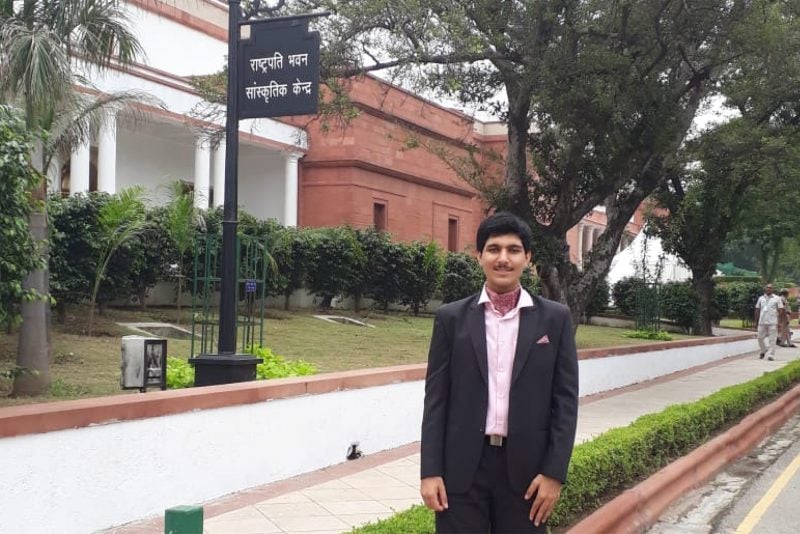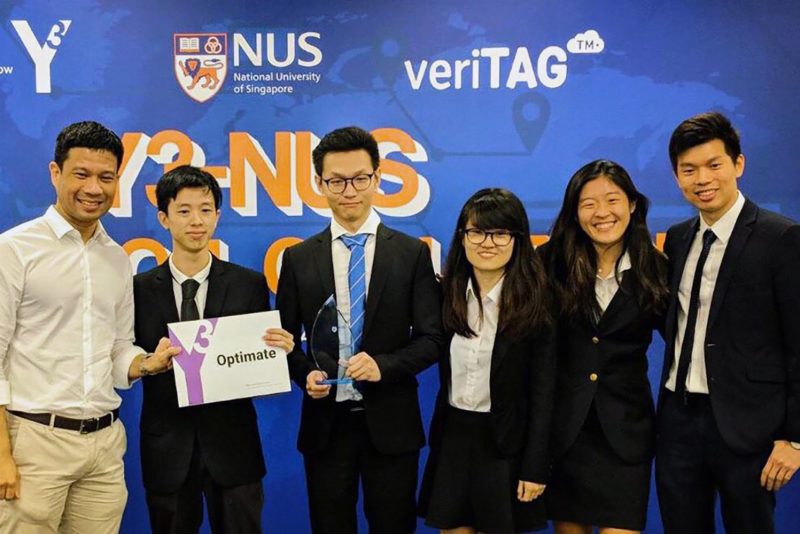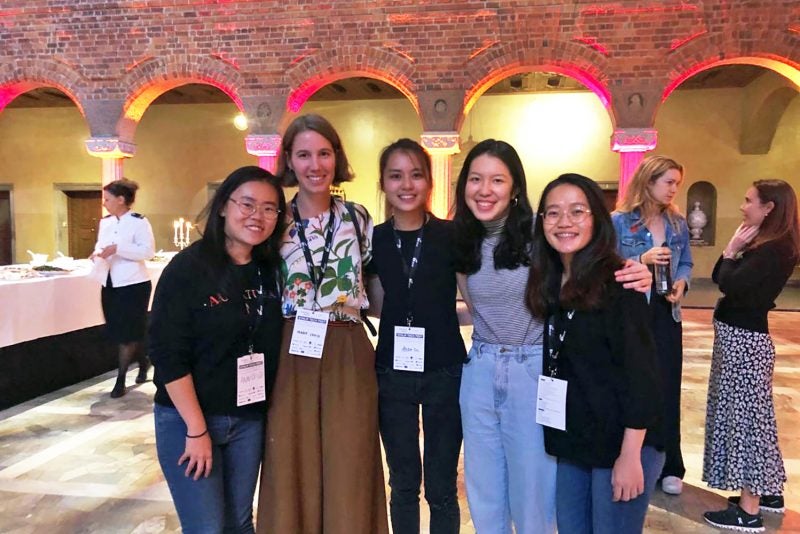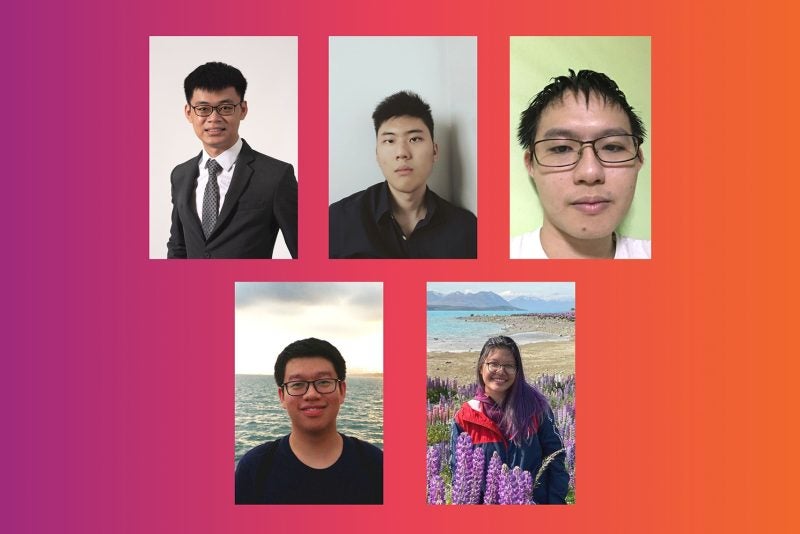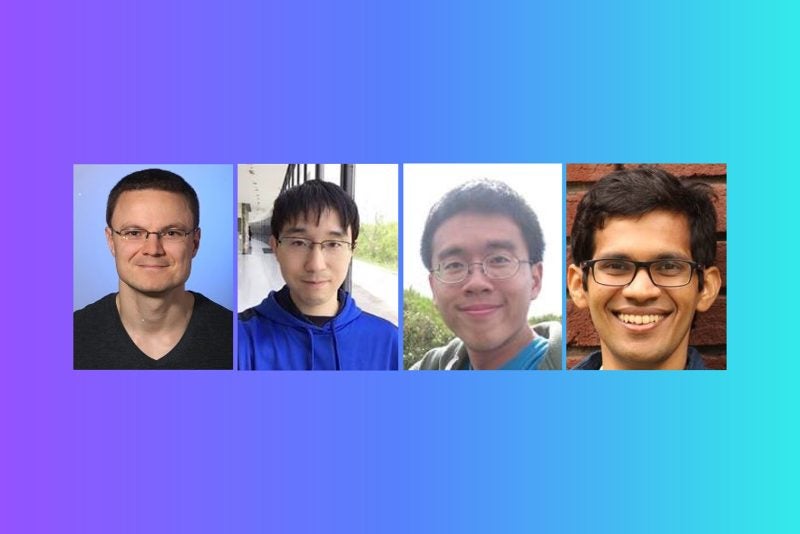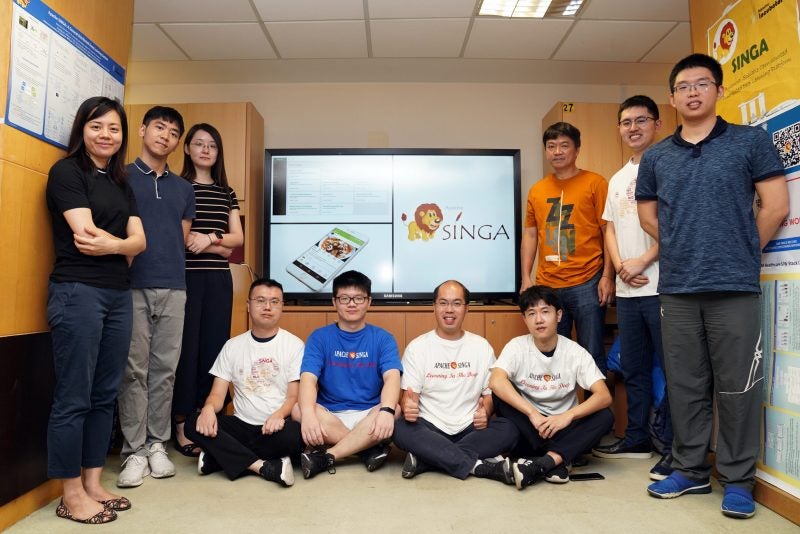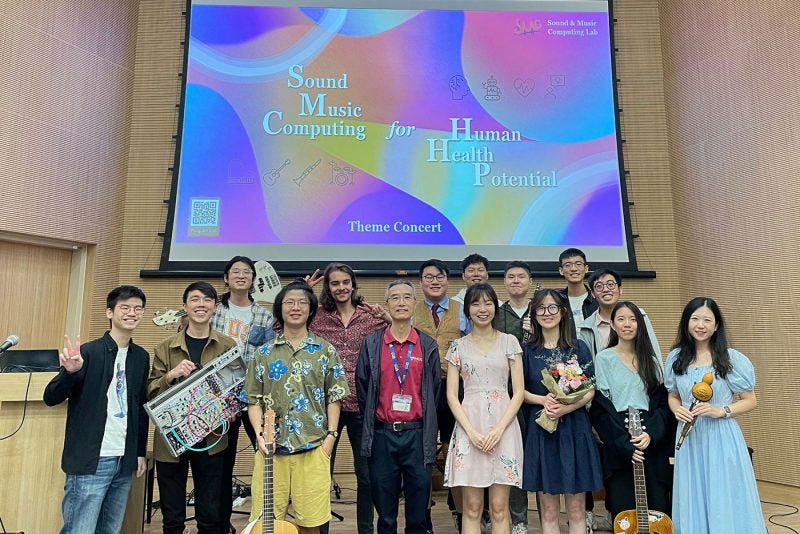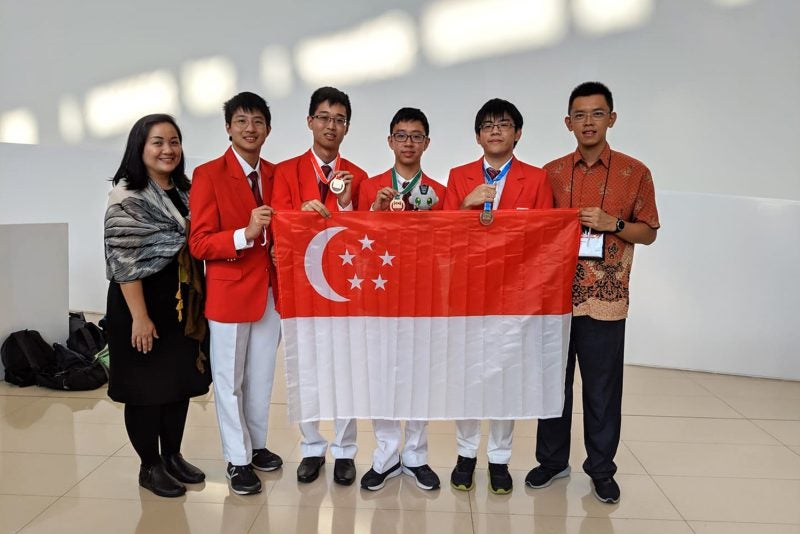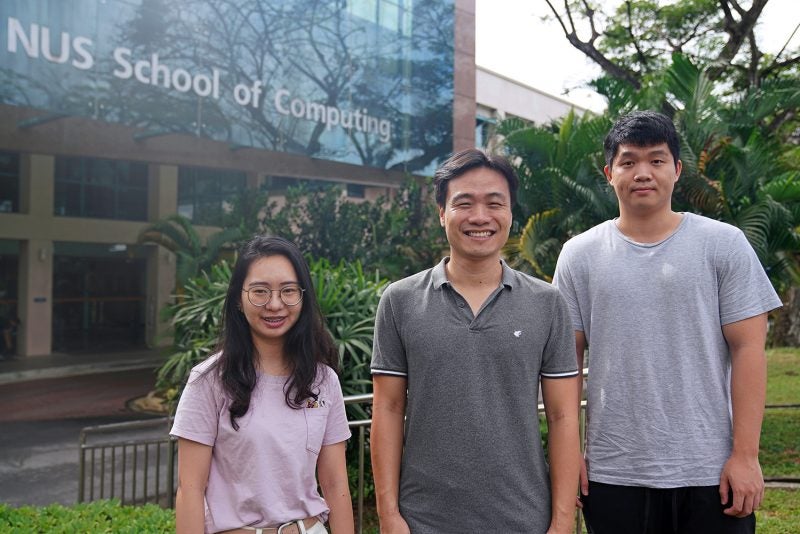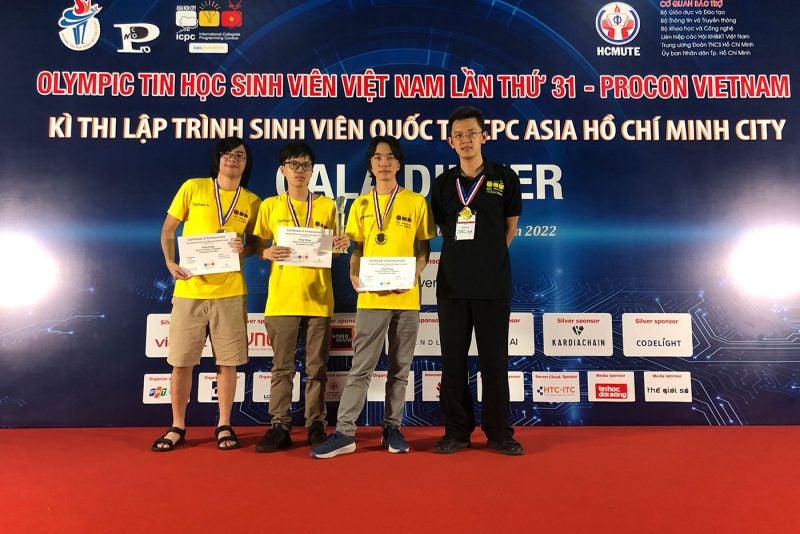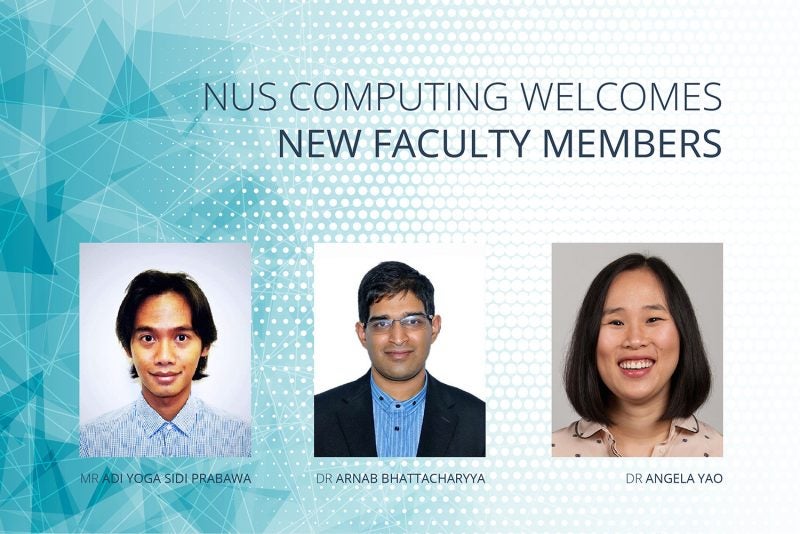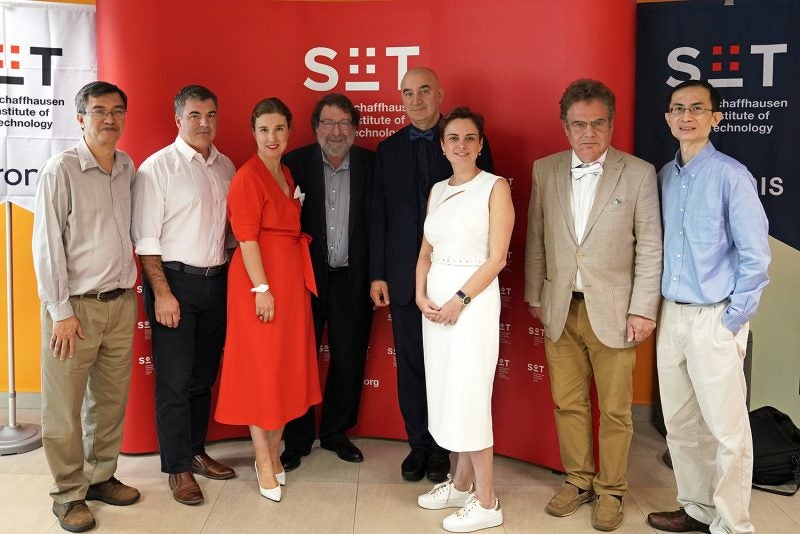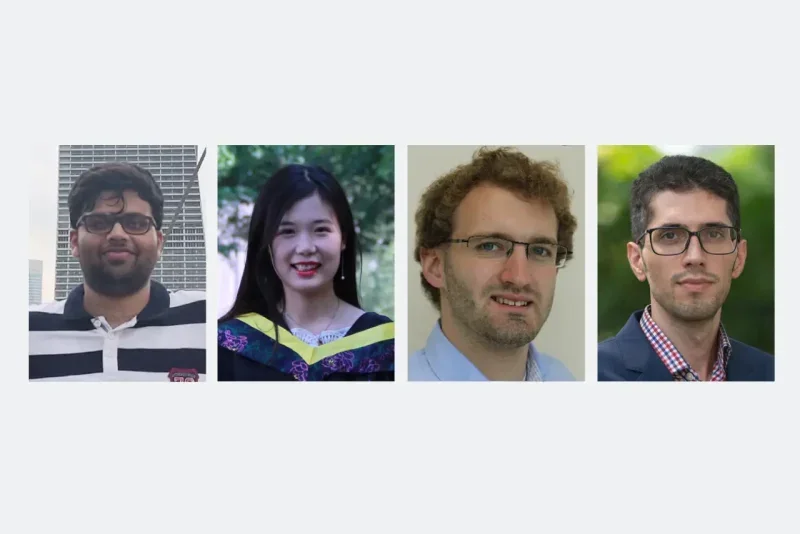14 Sep 2023 — The Medical Grand Challenge (MGC) is a student-led medical innovation programme organised by the NUS Yong Loo Lin School of Medicine for young innovators (one of whom must be a medical student) from various schools and disciplines to gather and address unmet healthcare needs in creative ways. It spans a year, beginning in January and culminating in a Grand Finale on 19 August 2023. The projects are evaluated for their creativity, design quality, healthcare impact and business strategy.
Team SemperStroke, as they are named, clinched Third Place in the Nascent category and received a team cash prize of $10,000 at the recent MGC. Students who compete in the Nascent category are to identify an unmet healthcare need and devise a solution from scratch.
The dynamic team comprises NUS Computer Science students: Jun Xiong Ong, Yongliang Liu, Marcus Duigan Xing Yu, Hsiao Jiet Ng, and Justin Gnoh Kit Peow; NUS Psychology student: Ganesh Selvarajan; and NTU Medicine student: Wang Jia Dong James.
Their project looks at developing a virtual reality (VR) tool named “SemperStroke,” aimed at helping patients with stroke rehabilitation. It offers an immersive virtual environment that plays a pivotal role in enhancing the physical and cognitive functions of stroke survivors. Moreover, SemperStroke provides a comprehensive solution that encompasses both occupational and physiotherapy, tailored precisely for stroke patients.
Ong, the team’s spokesperson, enthusiastically explained, “By using SemperStroke, we hope to make this journey a bit more engaging, faster, and enjoyable. Not only does this tool have the potential to speed up the recovery process, but it also adds a layer of fun and motivation, making patients more inclined to stick with their rehab exercises. It is a combination of technology, healthcare, and a touch of fun, all aimed at giving stroke survivors a better shot at a speedy and effective recovery.”
Faced fierce competition from the other 8 contenders, the team reflected that it was the creative solution they derived from integrating healthcare and the next generation of technology that helped them stand out from the competition. “Our solution wasn’t just technologically advanced but also centred on a genuine human need, ensuring that post-stroke patients received care that was both effective and engaging,” added Ong.
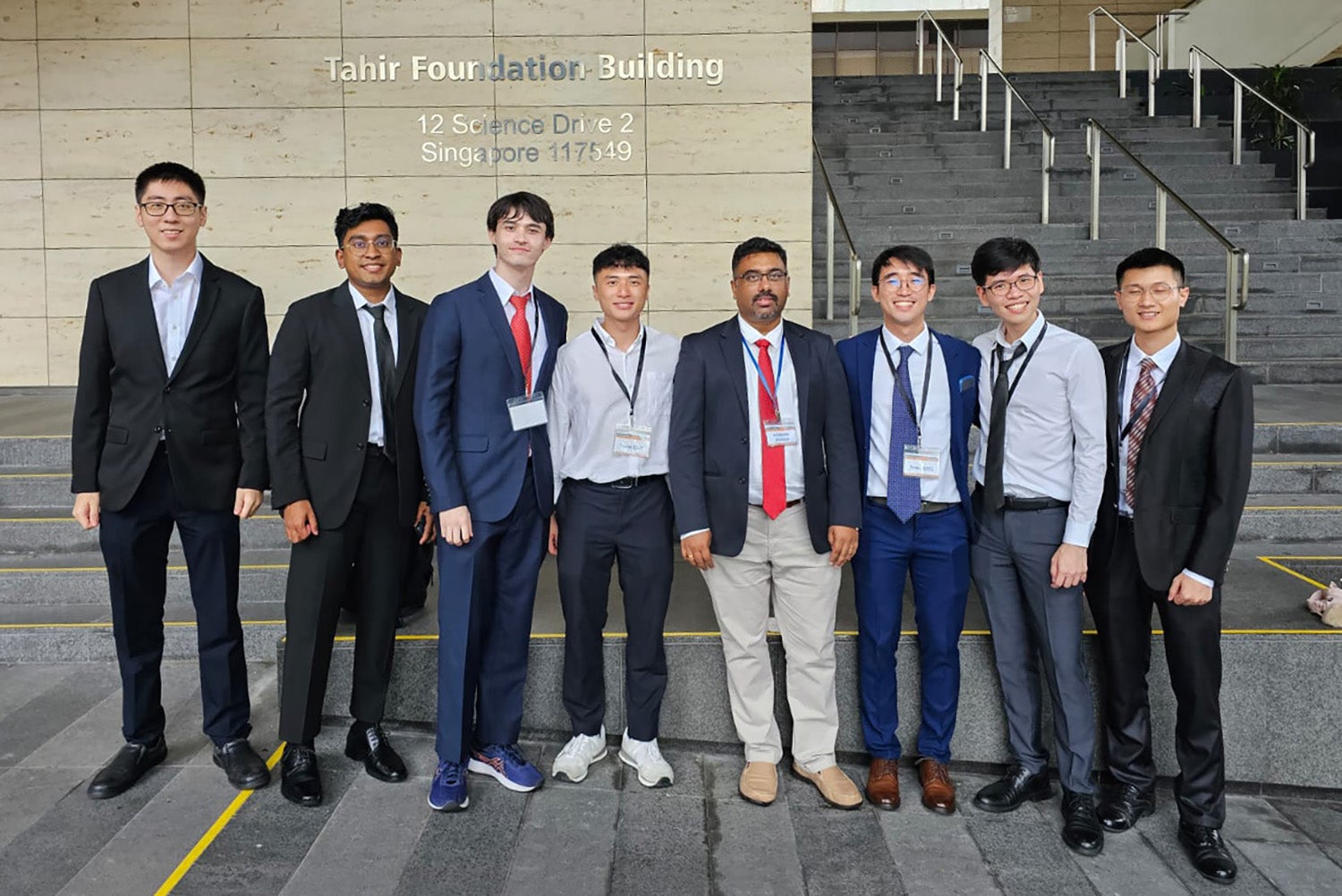
Prior to the challenge, group members Ong, Liu, Duigan, Ng, and Gnoh were in the CS4240 Interaction Design for Virtual and Augmented Reality course together. Their course lecturer Dr Anand Bhojan encouraged them to pursue their course project and participate in MGC.
Upon hearing the results, Ong conveyed the team’s feelings, “When the results were announced, it was a mixture of shock and overwhelming joy. The room echoed with our team’s cheers and perhaps a few tears of happiness. After months of hard work, sleepless nights, and countless iterations, knowing that our vision for SemperStroke was being recognised and appreciated was an indescribable feeling.”
For more information on the competition, please visit the Medical Grand Challenge website.

